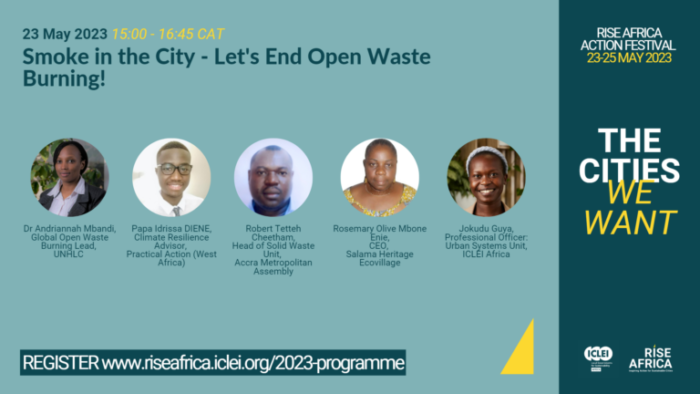Open dumping and burning waste continue to plague many cities in this country. A recently published report by the United Nations High-Level Champions, “Open burning of waste in Africa: Challenges and Opportunities,” has raised concerns about the adverse impacts for both environment and human health arising from this practice. Household burning takes for approximately 26% of global waste and another 15% in landfill sites. The high rates of air pollution have been the leading cause of 1.2 million premature deaths per year in Africa. Waste management solutions are required to reduce open waste burning and dumping, particularly at the end of product life cycles. Could an unsustainable waste disposal practice undermine the circular economy approach in cities?
The simple answer: Yes.
Q: What challenges affect the waste sector in many cities and communities within the top of open burning?
The challenges affecting the waste sector in many cities are that we can see the physical problem and its effects, but we need more practical solutions to bring change. Another challenge is that people lack options in the disposal of their waste; either they do not have access to recycling plants or don’t know how hence why they do not do it. When people don’t know what to do with their waste, they burn it. It is the quickest way to get it out of sight, but it returns more intensely. This tends to happen in areas with inadequate waste management infrastructure or limited access to proper waste disposal facilities.
Q: What is the status quo when it comes to open burning? What are the barriers that are stopping us from achieving our ideal waste management?
The informal sector holds so much valuable, yet the smallest amount of awareness due to their capabilities to merge the service and value chains, allowing little to free material trading with no deficit to the government. This free material comes from the waste dumping and open-burning methods adopted over time. Barriers that are preventing us from achieving our ideal waste management is the developing mind of developing countries. The deficit began with our perception of our resources: waste is never waste in Africa. By seeing our waste as more than trash, there are surges in job creation, health rates, air quality, and many more.
Q: What emerging solutions can be applied to eliminate open burning?
Emerging solutions that can be applied to eliminate open burning are improved waste management systems, which are essential to increase waste collection and recycling programs. Growing funding for waste-energy facilities would be fantastic for converting incineration and pyrolysis into electricity, heat, or fuel.
Fuel to the fire…
Open dumping is like lighting a match in a haystack. It increases air pollution, water contamination, and disease transmission, to state a few. It slows down and stalls the job market due to the possibilities yet the inability to create them. An unsustainable waste disposal system undermines the economic circulatory system because it holds down the informal structure and destabilizes the political and social hierarchy.
Speakers Included::
Andriannah Mbandi, Global Open Waste Burning Lead, UNHLC
Papa Idrissa DIENE, Climate Resilience Advisor, Practical Action (West Africa)
Robert Tetth, Cheetham, Head of Solid Waste Unit, Accra Metropolitan Assembly
Rosemary Olive Mbone, Enie, CEO, Salama Heritage Ecovillage
Jokudu Guya, Professional Officer: Urban Systems Unit, ICLEI Africa



